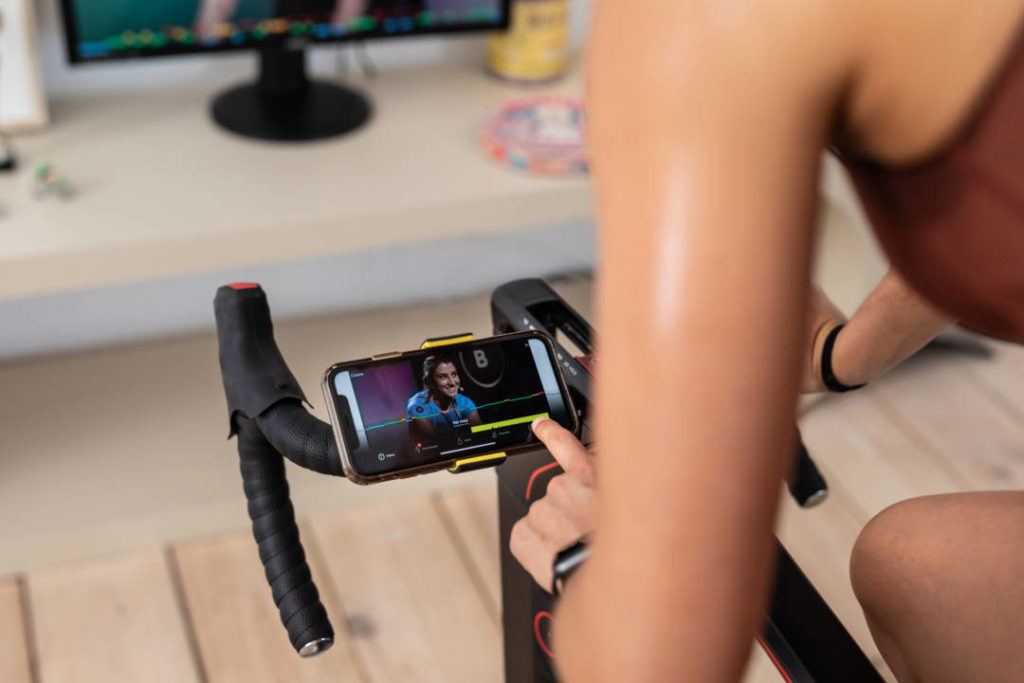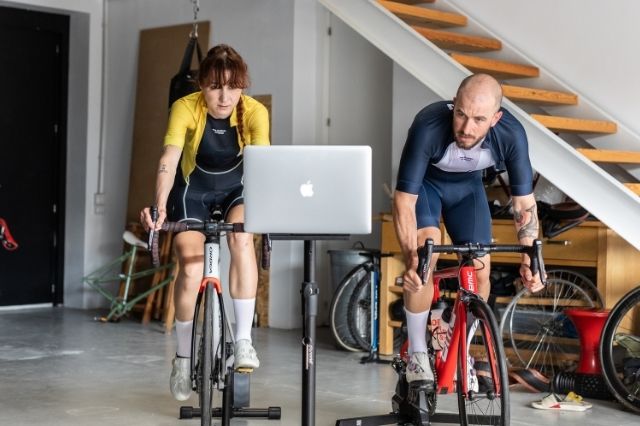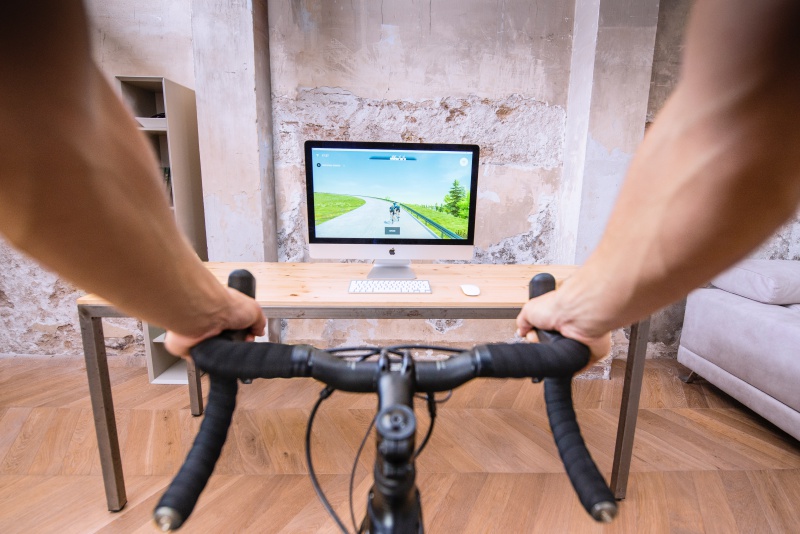New to cycling and don’t know how many hours of training you need? It’s a question that comes with different answers, as there are factors that can have an influence: your personal goals, level of experience and time availability.
In this article, we will look at the factors you need to consider when planning your training routine, always bearing in mind that BKOOL is here to help you with your time management and make your sessions more enjoyable and efficient.
Setting your personal goals
The first step in determining how many hours a week you need to work on BKOOL is to set your goals. These may include improving your endurance, increasing your speed, losing weight or preparing for a specific mileage cycling event. Once you have identified your goals, you can tailor your training programme to achieve them efficiently.
Factors to consider when determining training hours
There are several factors to take into account when calculating how many hours a week you should dedicate to training at BKOOL.
Experience level: when you are just starting to approach cycling, and BKOOL sessions, it is best to do so gradually, slowly but surely. In this context, you may need to start with shorter and less frequent training sessions to allow your body to adapt to the exercise. As you gain experience and endurance, you can gradually increase the duration and intensity of your workouts.
Time availability: The amount of time you can devote to training will depend on your personal schedule and your other responsibilities. Try to be realistic when planning your training routine and make sure you allow enough time for rest and recovery.
Current fitness level: If you are in good physical shape, you may be able to handle longer, more intense training sessions from the start. However, if you haven’t exercised in a while or if you have any physical limitations, it is important to start with a more gentle and progressive training programme.
Different training approaches according to the level of experience
Below are some general guidelines for different levels of experience in terms of hours of BKOOL training per week:
Beginners: If you are new to cycling or to BKOOL, start with 30 minute to 1 hour training sessions, three times a week. As you become more comfortable and your endurance increases, you can increase the duration and frequency of your workouts.
Intermediate cyclists: Once you have passed this first phase, in which you get your body used to the position on the bike, enjoy and have fun with the sessions on our simulator, it is time to start increasing the volume and intensity: you may already be able to train for one to two hours, four or five times a week.
But before you move on to more advanced cyclists, bear in mind that with so many sessions in a week, you’ll need some variety of workouts: sets on a couple of days – which you can do in our workout creator – short, intense sessions, and the odd long session to help you work on your aerobic zone. Variety is the spice of life, remember!
Advanced cyclists: More experienced cyclists and those preparing for cycle tours of over 100 kilometres may need to train around 12 hours a week. At this level, it is essential to incorporate different types of training, such as threshold sessions, high intensity intervals and active recovery training, to improve endurance and speed.

Balancing BKOOL training with other physical activities
BKOOL training is a great way to improve your cycling skills, but it is also important to complement these sessions with other physical activities to maintain a balanced approach to your overall wellbeing. Some options may include:
- Strength training: Be sure to include strength exercises in your weekly routine to improve leg power and prevent injury. You can do bodyweight exercises or use weights and machines at the gym.
- Flexibility training: Incorporate stretching and activities such as yoga or pilates to improve your flexibility and keep your muscles and joints in good condition.
- Low-impact activities: Doing low-impact activities, such as swimming, on your rest days will help maintain mobility and promote active recovery.
The importance of rest and recovery in training
You should not underestimate the importance of rest and recovery in your training programme. Be sure to include rest days in your weekly plan and listen to your body to avoid overtraining and reduce the risk of injury. Some effective recovery strategies include:
Get enough sleep: Sleep is essential for muscle recovery and overall performance. Try to get 7-9 hours of sleep each night and maintain a regular sleep routine.
Adequate nutrition: Eating a balanced, nutrient-rich diet is critical to support recovery and physical performance. Make sure you include a combination of protein, carbohydrates and healthy fats in your diet.
Relaxation techniques: Stress can negatively affect recovery and performance. Incorporate relaxation techniques, such as meditation or deep breathing, to reduce stress and promote optimal recovery.
BKOOL is the most comprehensive cycling simulator on the market – try it FREE for 30 days!













